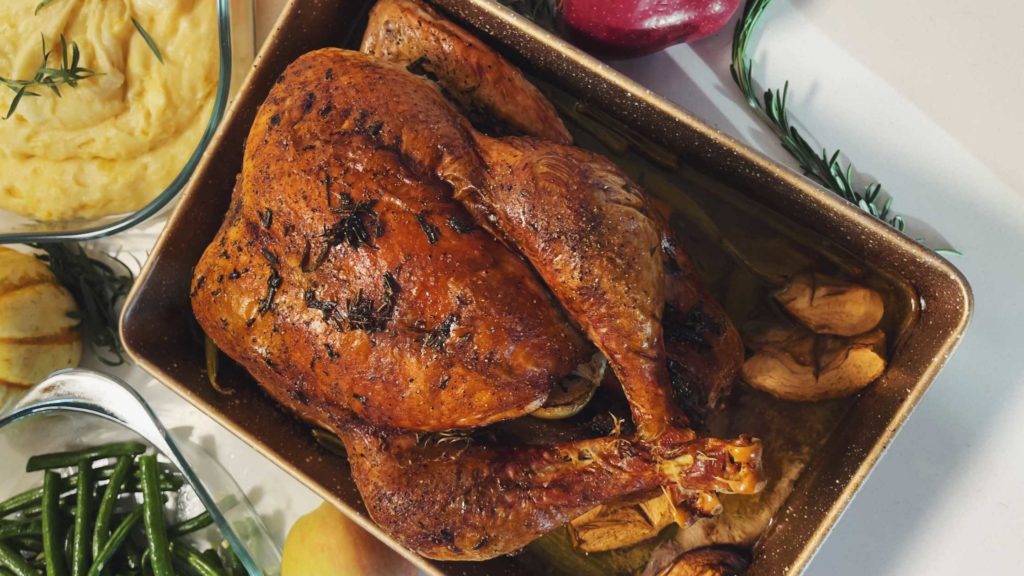Menu
Download our mobile app
today for exclusive savings and rewards!
today for exclusive savings and rewards!
Get Prepared for Easter with Fresh Farms | Now Available Baby Lambs
(Please Ask Our Meat Department For Assistance. Available at all stores except for Devon Ave)

Thanksgiving is coming, and it’s time for our families to be together! We get to enjoy big meals, especially turkey.
Thanksgiving meals are not complete without turkey. Turkey is a symbol of plenty, and everyone is looking for it.
Today, we usually purchase our Thanksgiving turkey from the supermarket. Don’t get us wrong, it’s nice to buy them from these areas, but we need to know where they come from.
Knowing where turkeys are from shows its quality, if it follow animal welfare, and is safe for those who eat it.
Look at the finest turkeys available today and help you make wise decisions for a splendid Thanksgiving celebration!
As we select your centerpiece for your upcoming celebration, let’s look at several options available.
Take note that each turkey has their own advantages. Let’s look at four types below!
Also known to be traditional and standard, it’s the most common in the market.
They’re known to be large in size. They’re the best option when you have a lot of people coming.
What makes them unique is their whiter meat compared to the other types. They’re also more affordable for those on a budget.
This type is special because it’s healthy and safe for the environment. This is because they follow the rules for them to be called “organic”.
Before being served to the market, these turkeys are:
The place they usually grow in is quite smaller than the first type. They don’t use many chemicals, that’s why they’re safer.
What sets them apart is their distinct taste. Their meat is even tender, so it’s perfect for your Thanksgiving meal.
Another special turkey is likened to organic turkeys. They’re nurtured to go outside to explore and have a little adventure. They had a good quality of life and did not go against animal welfare.
Picking free-range turkeys is a great idea for a few reasons:
You need to check the package label to see if you’re purchasing a free-range turkey. If it says “Certified Humane”, you can add it to your cart.
Yes, they can be a bit more pricey. Know that their benefits will make your Thanksgiving better.
From the word “heritage”, you need to know that these are the ancestors of fast-growing turkeys. They’ve been around long, so you know how well-connected they are to our food traditions.
They take their time to grow, so the meat is even more delicious. The meat of heritage turkeys has a traditional turkey taste. It’s often juicier than the regular ones.
If you’re into a crispy and crunchy skin, choose this type!
Aside from choosing the type of turkey you’ll be placing on your table, there are other important things to consider. For instance:
We know that you want a good Thanksgiving. A good turkey served always depends on how much it costs.
The type of turkey and its origin makes a turkey affordable or expensive.
A conventional turkey is usually the cheapest option. Organic turkeys are slightly pricier. The heritage breed turkeys are the most expensive ones.
Are you into a fancy celebration or just an intimate one? Make sure the turkey matches your personal taste. To do that:
You’ll always see labels and certifications stuck into your turkey’s packaging. Some labels include:
Read your labels carefully to maximize what your turkey has to offer. It gives you an insight into how it was raised. If you have concerns, ask the store staff or the butcher.
If you like a particular turkey brand, visit their website. You can also contact them to learn about turkey sourcing.
Choosing a good turkey, especially one that’s local, is safe for the environment. You can help your local farmers gain the recognition they deserve.
As soon as you get to the grocery, always put your health and the well-being of your family first. Here’s what you need to keep in mind:
It’s so great to pick a turkey where the taste is essential. The four types we mentioned earlier have different flavors. It can affect the meals that you cook.
Here are the flavor profiles for each type:
Another method that affects the flavor is how you cook it. Usually, we roast it. Some even brine it; for a smoky flavor, we grill it.
By sourcing your turkey carefully, you can celebrate the most memorable Thanksgiving with your family. You can choose one that’s great, humane, and beneficial.
At Fresh Farms, we can align your choices with our turkey types. Together, we can make Thanksgiving a time for feasting and making a positive difference in the world.
Eat well.
Save time.
Live better.